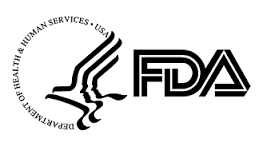
Editor's Note Some patients with early-stage breast cancer who achieve a complete response to pre-surgical chemotherapy and radiation may safely avoid surgery, according to a March 27 announcement from The University of Texas MD Anderson Cancer Center. The report details a Phase II trial, published in JAMA Oncology, finding that…

Editor's Note A significant increase in the use of neoadjuvant systemic cancer therapies is among the most notable findings from the first annual cancer report from The American College of Surgeons (ACS) National Cancer Database (NCDB). The report also emphasizes the value of early detection, innovative therapies, and robust datasets…

Editor's Note Preliminary research shows removing breasts or ovaries can significantly improve survival and reduce recurrence risk in young breast cancer patients with BRCA mutations, HealthDay reported December 13. The findings were presented this week at the San Antonio Breast Cancer Symposium. According to the article, researchers analyzed data from…

Editor's Note Balloon catheters for atrial fibrillation patients and implantable radiographic markers were the subjects of separate US Food and Drug Administration (FDA) Class 1 recalls—the most severe category indicating risk of serious injury or death—announced on December 18. The first recall involves Boston Scientific’s POLARx Cryoablation devices. Higher-than-anticipated reports…

Editor's Note Active monitoring for certain breast cancer patients offers similar outcomes to surgery with fewer side effects, according to research detailed in a December 16 article from Oncology News Central. Presented at the 2024 San Antonio Breast Cancer Symposium and published in JAMA, The COMET trial supports the safety…

Editor's Note Skipping sentinel lymph node biopsy (SLNB) in patients with clinically node-negative early breast cancer provides noninferior outcomes compared to undergoing the procedure, MedPage Today reported December 13. Presented at the San Antonio Breast Cancer Symposium and published in the New England Journal of Medicine, the INSEMA trial found…

Editor's Note An electronic health record (EHR)-based nudge could significantly reduce low-value axillary surgeries in older women with early-stage breast cancer, researchers reported July 17 in JAMA Surgery. Conducted across eight clinical settings, the initiative significantly cut the rates of low-value sentinel lymph node biopsies (SLNB) by nearly 50% over…

Editor's Note Medical professionals have long accepted that bilateral mastectomy does not improve survival outcomes for breast cancer patients. However, a study published in JAMA Oncology reveals a puzzling finding: Those who develop a second cancer in the other breast have a higher risk of death. As detailed in a…

When it comes to the adoption of artificial intelligence (AI) in medicine, radiology is leading the charge. As of May 13, 2024, the US Food and Drug Administration (FDA) had approved nearly 900 AI- and machine learning (ML)-enabled devices, and the vast majority of them are in radiology. One example…

Editor's Note Artificial intelligence (AI)-fueled analysis of electronic health records suggests that clinical guidelines for de-escalating surgery should be extended to younger breast cancer patients. Conducted by University of Pittsburgh and UPMC Hillman Cancer Center researchers and published in JCO Clinical Cancer Informatics, the analysis suggests that “surgery involving sentinel…